IN FOCUS: How COVID-19 has disrupted the close links between Singapore and Johor
The coronavirus has brought traffic at one of the world’s busiest land crossings to a grinding halt. CNA takes an in-depth look at how students, families and businesses are coping with the situation.
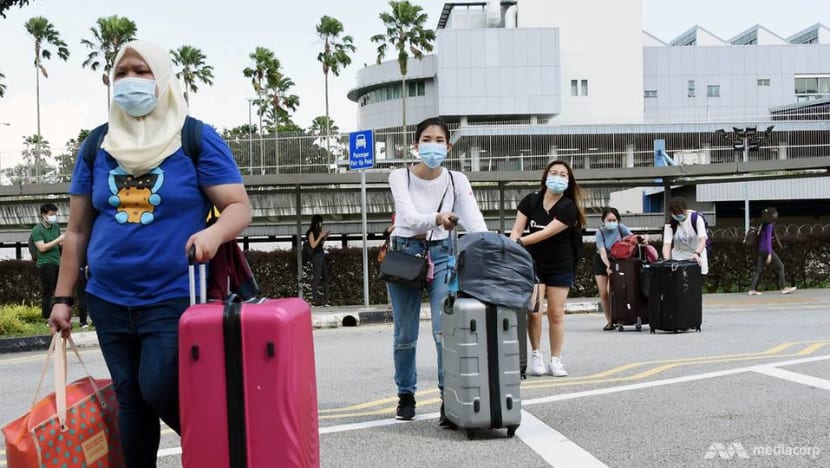
People arriving in Singapore from Johor, Malaysia walking to a chartered bus at Woodlands Checkpoint on Aug 17, 2020. (Photo: Try Sutrisno Foo)
SINGAPORE: Lee Jianhao (not his real name) is wide awake at around 4am every day, even though school only begins three hours later.
Tossing and turning in his bed in his aunt's Singapore home, the 14-year-old Malaysian student tries to go back to sleep. But in the dead silence of the wee hours of the morning, his mind wanders to his mother who lives alone in their home in Johor Bahru.
“I miss my mother. I miss rock climbing and playing basketball in my neighbourhood. It’s been too long and I feel frustrated about it,” said Lee, who has been living with his aunt since March.
Lee, who confessed that he has been homesick, studies in a secondary school in the northern part of Singapore.
He started studying in Singapore when he was 10 years old. His daily routine would be to wake up at 4am in his home in Taman Molek. He would take a public bus to the Johor customs building, clear immigration, cross the Woodlands Causeway on foot, and reach school in time for assembly at 7.30am.
But since the COVID-19 pandemic, his routine has changed.
The border closures enforced by authorities to curb the spread of COVID-19 meant that people who commute regularly between both sides had some hard choices to make.
Malaysian students like Lee who commute daily had to decide whether to stay put in Singapore so that their education would not be disrupted. Families were kept apart, while livelihoods were hit and businesses had to adapt.
Given the severity of the pandemic, there is no clear indication when around 300,000 Malaysians will be able to restart commuting daily across the Causeway. But what this episode has brought into stark focus is the interdependency between both sides.
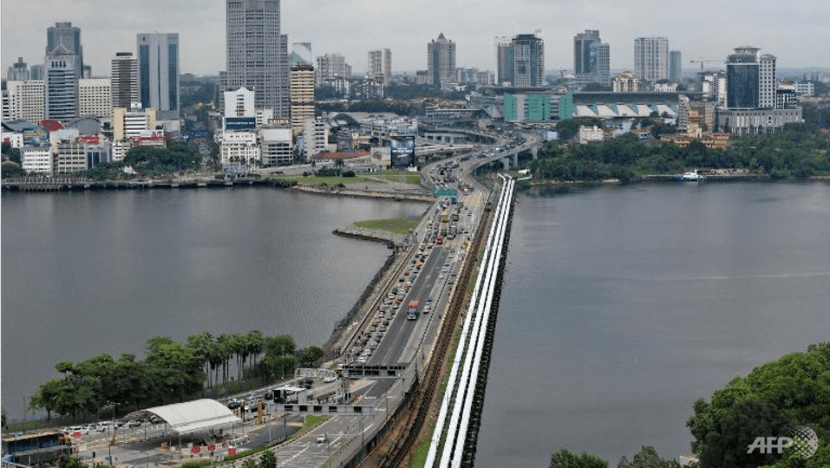
In an interview with CNA, Singapore Consul-General in Johor Bahru Jeevan Singh said: "The COVID-19 pandemic has reinforced how deeply interdependent Singapore and Malaysia are, and how challenging it can be for families and businesses with travel restrictions in place."
He said the Singapore High Commission in Kuala Lumpur and the Singapore Consulate-General in Johor Bahru have had regular engagements with key stakeholders in Putrajaya and Johor to exchange relevant information on the respective COVID-19 situations.
"We have been able to work closely together to repatriate each other’s nationals stranded overseas, maintain connectivity and facilitate cross-border movement of goods," said Singh.
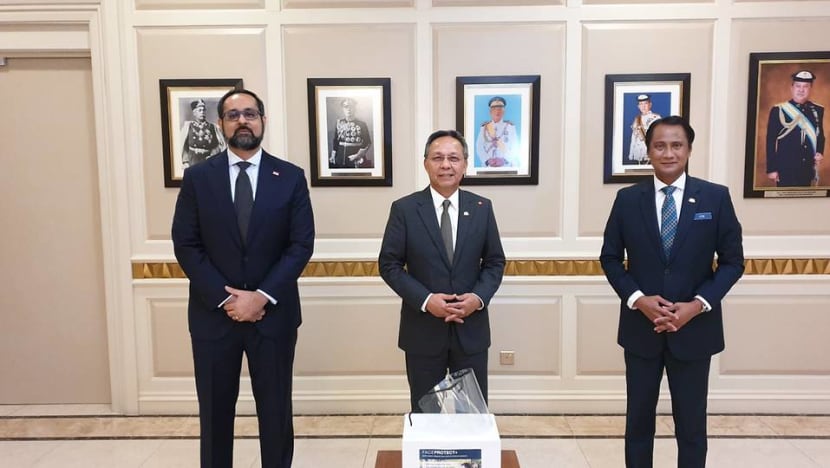
He added that the consulate-general, and several other public and private sector players from Singapore have proactively come forward to support Johor's efforts in combating the pandemic.
He also cited how the Singapore Economic Development Board partnered 19 companies, of which 18 have operations in Johor, to donate medical equipment and supplies for frontline Johor healthcare workers in June this year.
"These gestures of support and assistance, alongside our regular exchanges with the federal government and Johor authorities, reflect our shared commitment to working together to fight the pandemic. I am confident that Singapore and Malaysia will emerge from this trying time with a strengthened and closer relationship."
TRYING TIME FOR STUDENTS
The year-end school holidays are coming up but Lee remains in limbo. Despite his heart telling him to return to Johor Bahru, he told CNA: "It’s a risk I’m not willing to take."
"The school holidays are coming and I considered going home, but what if I can’t come back? I would not be able to resume Secondary Three in January.”
He sees his time away from family this November and December as an opportunity for him to focus on his studies so that he can get a head start for next year.
For many who are now unable to commute to and fro daily, COVID-19 has unexpectedly helped them forge stronger ties with their family members.
“The saying absence makes the heart grow fonder? I think that applies to me and my mum,” said Lee.
His relationship with his mother is better than ever, as they are still able to communicate through video calls. He is also grateful to his aunt’s family, with whom he is staying.
Another student who is in a similar situation is Koh Ji Sen, a Malaysian Secondary Two student who is studying at a school in Yishun. His name has been changed for his safety as a minor living alone.
CNA Insider interviewed Koh in May and learnt that he has been living on his own in Singapore, isolated from his family in Tebrau, a suburb of Johor Bahru.
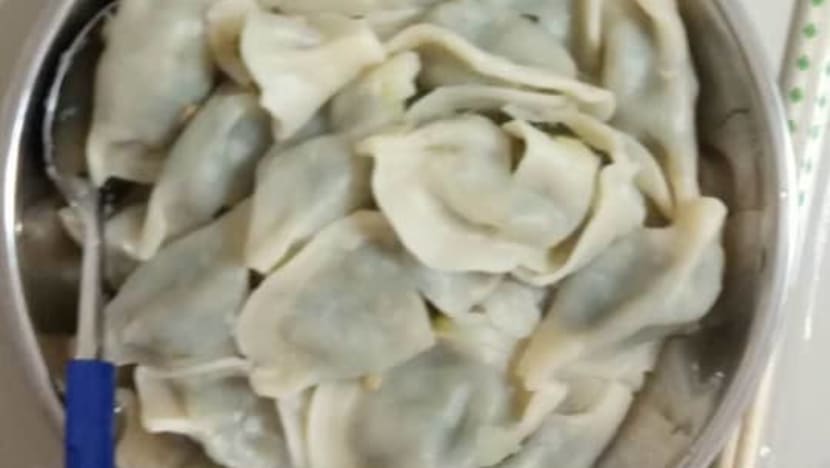
Over the last six months, Koh has had to cook, clean and do laundry for himself without help.
However, unlike Lee, Koh will be heading home to meet his family once the school holidays commence in two weeks.
When CNA caught up with him again in October, Koh said he was aware that he might not be able to come back in time when school reopens in January. However, he said he did not want to spend more time away from his family.
“I want to study in Singapore all the way until university, but I think when it's school holidays, it’s important for me to go home and recharge,” said Koh.
“Over the last six months, I have learnt to live independently, and these are valuable skills,” he added.
Besides students who have been separated from their parents, there are also Malaysian workers who have been distanced from their young children.
After the movement control order (MCO) was implemented in March, these parents made the decision to remain in Singapore for the sake of their work, in some cases leaving their spouses and young children behind.
"A SACRIFICE I HAD TO MAKE": FATHER WHO MISSED BIRTH OF DAUGHTER
In one case, a Malaysian parent who wanted to be known only as Lim, told CNA that he was in Singapore when his firstborn daughter was born in Johor Bahru.
The 28-year-old IT engineer last saw his pregnant wife in March, and she gave birth to a baby girl in April. He has yet to see his daughter.
“It was tough not being to hold, carry, smell your firstborn. But it’s a sacrifice I knew I had to make,” said Lim.
“I have a job, many are unemployed. And the money I earn is for her and my wife as well.”
Lim is keen to go back home soon and see his daughter for the first time, but he said that he wants to wait a little longer to see if authorities might agree to reopen the borders before the end of the year.
While parents like Lim are willing to wait, others were desperate to be reunited with their children.
Some of these parents left their infant children with guardians or grandparents when they and their spouses decided to stay in Singapore to work.
However, when it became clear that the MCO and border restrictions were going to last longer than expected, they approached the authorities for a special arrangement to reunite with their families.
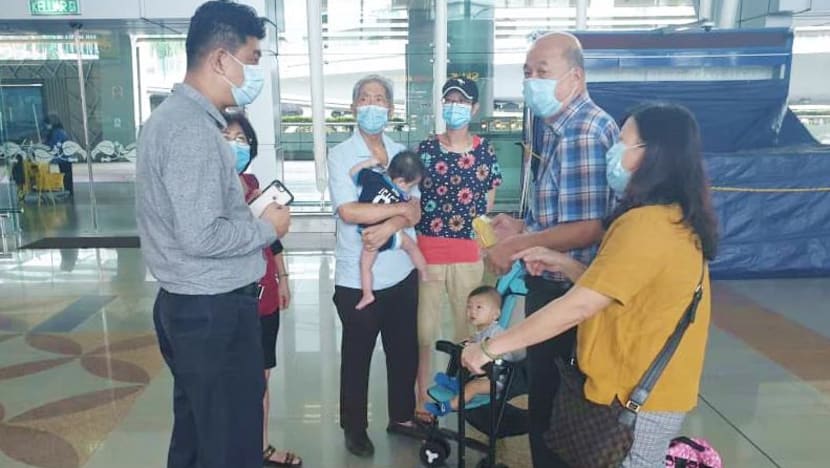
State assemblyman for Johor’s Stulang constituency, Andrew Chen, is among those who led efforts to work with these parents, as well as immigration authorities on both sides of the border.
Upon getting approval by the authorities for a case, usually on compassionate grounds, the Democratic Action Party lawmaker would help make arrangements for the infant children and guardians to be driven from Malaysia’s immigration checkpoint to Singapore’s checkpoint to “pass the baby over to the parents”.
He has witnessed a number of these “special and emotional” moments, with the parents, guardians and babies often in tears.
“In some cases, the babies have been separated from their parents for so long that they cannot recognise them, so I think it is important to bring them back together,” said Chen.
Over the last few months, Chen has been active in trying to resolve issues relating to families on both sides of the border.
He has helped expectant mothers return home as well as ship frozen breast milk from mothers in Singapore to their babies in Malaysia.
“I have to play my part as the people’s representative in Johor Bahru,” said Chen.
“With the closure of the Causeway, I see a need to help them. There are a lot of people facing difficulties."
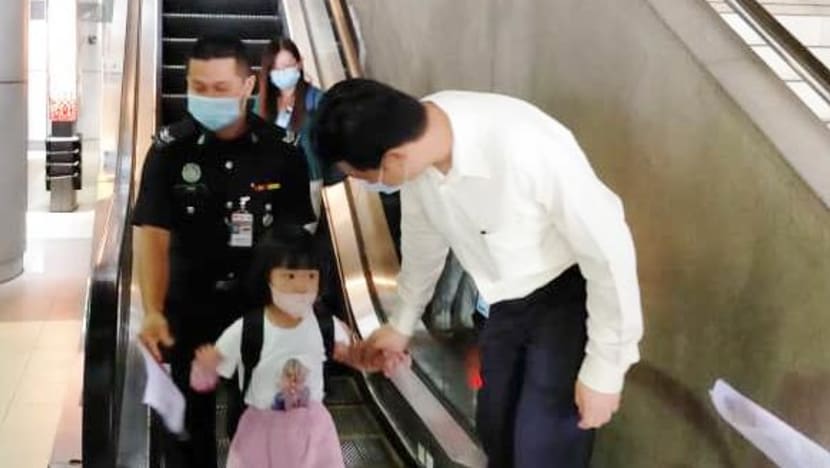
“CRISIS A REMINDER THAT FAMILY IS IMPORTANT": SINGAPOREAN SEPARATED FROM ELDERLY PARENTS
While most of those who commute across the Causeway and Second Link daily are Malaysians, there are also some Singaporeans who have been kept apart from loved ones due to the border closures.
For example, Abdul Razak Abdul Malik, a 63-year-old retiree, said that he has not seen his elderly parents who live in Melaka since end-2019 as border restrictions have prevented him from driving up, even for Hari Raya in May 2020.
“They (my parents) don’t know how to work the video chat but I do call them every week to check on them, their health, whether they have enough money and grocery supplies,” said Abdul Razak.
The former businessman, who owned a childcare centre in Singapore, said he longs for the borders to reopen so he could see them in the flesh. His parents had moved to their retirement home in Melaka 12 years ago.
“Hopefully when the authorities permit, I would like to go over and stay for a few weeks,” he added. “I now realise maybe I should consider taking them to live with my family or move there to live with them in Melaka. This crisis is a reminder that family is important.”
Singh, the consul-general, said that since the start of MCO, his team has helped repatriate more than 300 Singaporeans via the land checkpoints, most of whom were elderly, very young, or had mobility issues.
"One case which left a deep impression on my team was a father who was separated from his young children and pregnant wife for months. He was understandably very anxious to return home, and we were glad to see them eventually reunited," said Singh.
He added that there has been an exponential increase in the number of Singaporeans calling the Johor Consulate-General for advice on various situations, including those needing to travel for compassionate reasons.
"We work closely with our agencies back home as well as our Malaysian counterparts to ensure that every Singaporean who reaches out to the Consulate-General gets the help they need," Singh added.
"I am proud to have a dedicated and selfless team here with me who have stepped up to assist and assure our fellow citizens during these challenging times, and where we can, reunite them with their families back home. It is heartening to note that our efforts have made a small difference to the challenges they are facing during this difficult time."
LOSS OF LIVELIHOODS
While some families adapted to living apart, there are also Malaysians who were unable to stay permanently in Singapore to report for work, for various reasons.
Some of them could not bear to be separated from their families, while others were terminated from their companies as the economic impact of COVID-19 hit both countries hard.
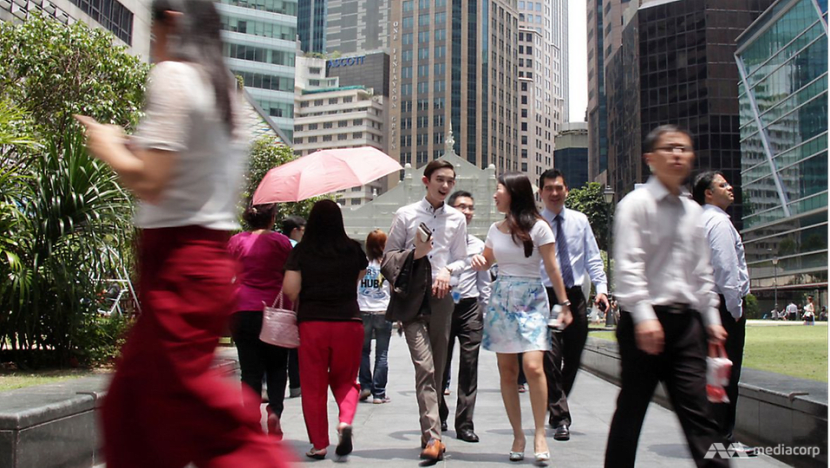
In September, Singapore’s Ministry of Manpower announced that retrenchment in the first half of the year was higher than what was recorded during the SARS period. The retrenchment in the second quarter had also doubled from the first quarter of 2020.
In the same month, Johor Chief Minister Hasni Mohammad noted that with the number of retrenchments in Singapore, Malaysians who work in the city state would also be impacted.
“If businesses in Singapore downsize their operations, thousands of Malaysians living in Johor and working in Singapore will most likely be laid off first," Hasni was then quoted as saying.
Factory worker Noor Hanif Mazlan told CNA that he was terminated by his company, a Singapore firm based in Yishun, in May.
Noor Hanif had initially stayed in Singapore after the borders were shut so that he could continue working, but his company was struggling and had to lay off most of its workers who were foreigners.
He was forced to move back to his home in Pasir Gudang, Johor and has since struggled to find a stable job.
Cases like Noor Hanif are common, said president of Malaysian-Singapore Workers (Pemas) task force, Dayalan Sreebalan.
Pemas is a non-governmental organisation that has been extending help to Malaysian workers who lost their Singapore-based jobs over the last few months.
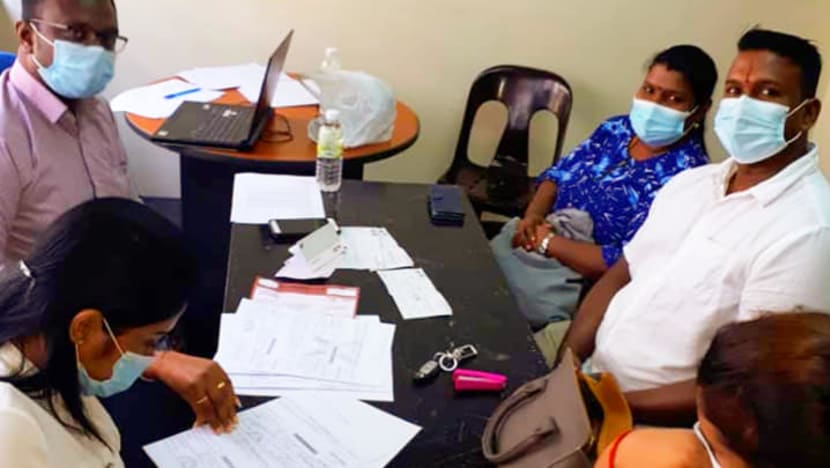
Dayalan explained that these Malaysians were caught between a rock and a hard place.
Many of them have been unable to find new jobs in Singapore because of COVID-19 border restrictions and their expired work permits. Moreover, they are also unable to find jobs in Johor because employers are less willing to hire workers who have worked in Singapore.
“They can’t get a job in Malaysia because of their job history. When employers here (in Johor Bahru) realise that they worked in Singapore, it affects their chances. They (the companies) are predicting that when the border reopens, these workers will go back to their former companies in Singapore. It would be a waste of time to hire them,” said Dayalan.
READ: ‘I eat one meal a day’: Some Malaysians who lost their jobs in Singapore left stranded and cash-strapped
He also outlined that many of these workers who used to work in Singapore have been grappling with mortgage payments because they bought houses and cars based on the salaries they received.
Fortunately, some of these workers had gotten relief from the three-month targeted extension of the loan moratorium for those who have lost their jobs during the COVID-19 pandemic, which was announced by Malaysian Prime Minister Muhyiddin Yassin in July.
One reason workers like Noor Hanif are struggling to find a job in Johor Bahru is because the town is reeling from the lack of tourists from Singapore.
In September, Hasni said Johor's economy has continued to contract, with the southern state expected to record its lowest gross domestic product (GDP) growth in the last decade.
He said the decline was evident in almost all sectors of the state's economy due to the pandemic.
READ: From malls to hotels, the Singaporean haunts that have gone quiet in Johor Bahru amid COVID-19
Commercial activities in Johor Bahru have been greatly impacted since the MCO, especially since the state’s capital has been dependent on tourists and visitors from Singapore.
With international tourist arrivals reduced to almost zero, some hotels and retailers in Johor Bahru have been forced to call it a day.
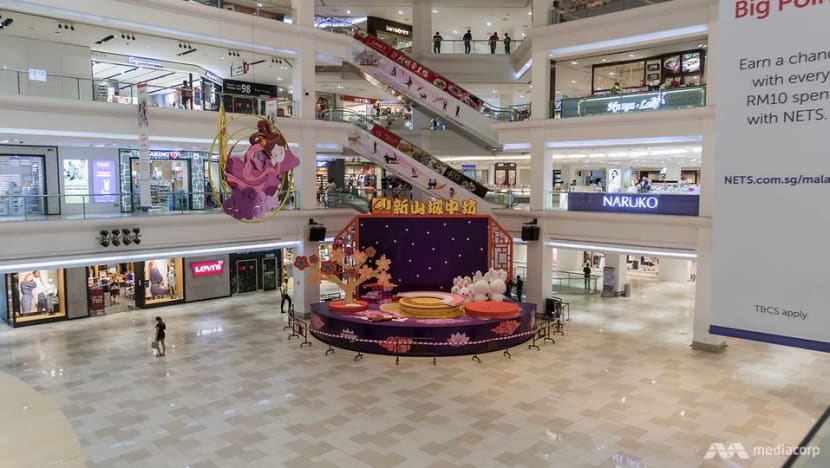
Areas in the city centre have seen less footfall, a stark difference when compared to weekends pre-COVID-19 when hordes of Singaporeans would throng malls, car washes, restaurants and hotels for short getaways.
According to data from Tourism Malaysia, Singaporeans were the biggest spenders among international visitors in Johor, forking out RM11.56 billion (US$2.78 billion) between January and June 2019.
In May, Hasni announced that the Johor state government would establish an investment company, called the Johor Investment Company (JICO), in Singapore to improve trade links between both sides.
PINING FOR FOOD FROM ACROSS THE BORDER
With no clear indication on when the borders could be open, the prognosis for some Johor businesses is worrying.
A popular establishment among Singaporeans – Hiap Joo Bakery & Biscuit Factory – is one example. Lim Toh Shian, son of the bakery’s owner, told CNA that business has dipped by around 70 per cent for the first few months after the MCO was put in place.
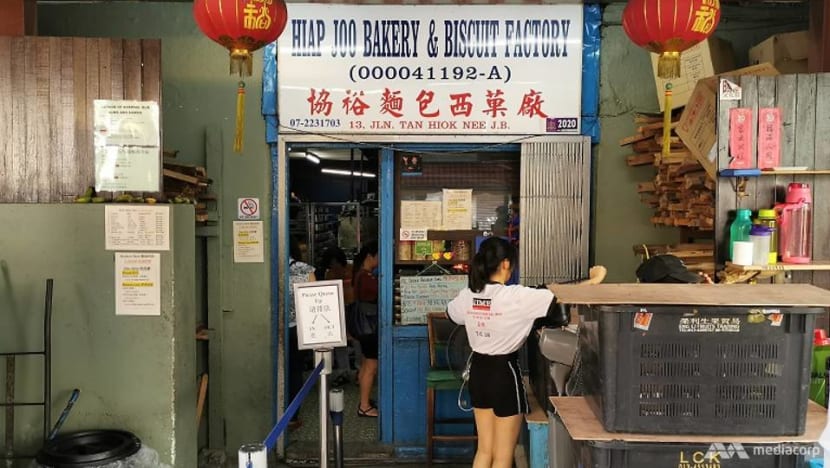
However, in recent weeks, his business has improved as Singaporeans pining for the bakery’s famous banana cake have found a way to get them.
Some entrepreneurs, working with food importers, have managed to bring in the cakes and resell them in Singapore.
One example is Pioneer Home Buy, started by businesswoman Brenda Tan, who is selling Hiap Joo’s famous banana cakes on Instagram. Another entrepreneur Sherie Woo is also selling the cakes on e-commerce platform Carousell.
Woo sells the cakes in clamshell containers with 10 slices each for S$6.80, and her customers are required to collect them from her home near Bukit Gombak.
“The orders we make from Hiap Joo are a bit irregular but whenever I advertise them, the cakes get sold out pretty quickly. They are really popular,” said Woo.
“People from the eastern part of Singapore would also travel to the west to collect a few boxes to share with their family and friends,” she added.
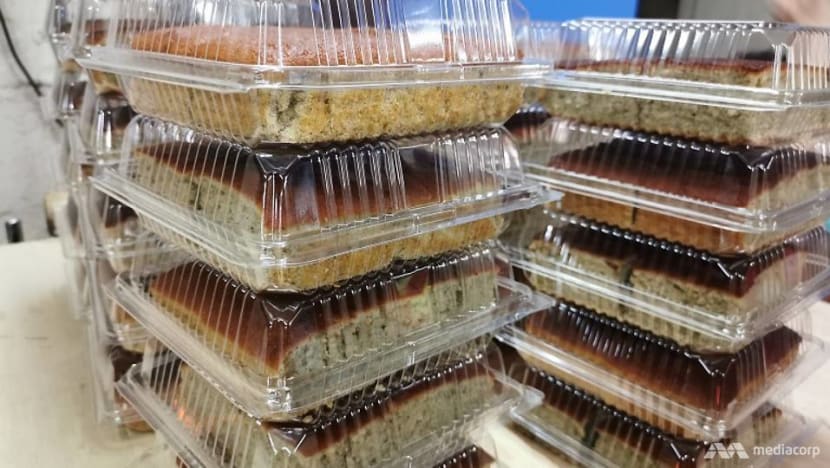
She told CNA that the border closure has taught her and many of her customers to appreciate what they have perhaps taken for granted.
“It’s also a way to ensure the business stays afloat and keeps going,” said Woo.
RGL, PCA FOR ESSENTIAL TRAVEL
In July, both governments finalised agreements to implement two schemes – Reciprocal Green Lane (RGL) and Periodic Commuting Arrangement (PCA) – for different groups of travellers.
The RGL facilitates cross-border travel for a maximum of 14 days for essential business and official purposes.
The PCA allows Singapore and Malaysia residents who hold long-term immigration passes for business and work purposes in the other country to enter that country. After at least 90 days, they can return to their home countries for short-term home leave.
The two schemes kicked off on Aug 17.
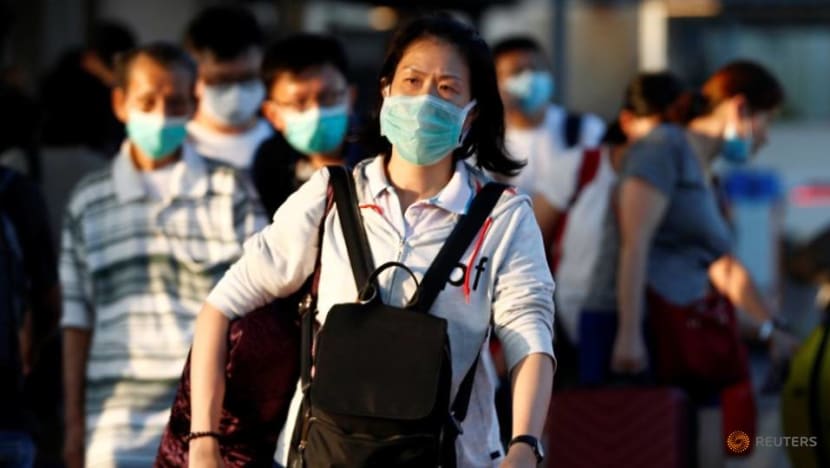
On that day, Malaysian Shariff Abdul Rahim entered Singapore on the PCA scheme to continue working at an IT manufacturing company based in the western part of Singapore.
He told CNA that the scheme has allowed him to work and earn money, and he is looking forward to heading back to Johor Bahru for his home leave after the three-month mark in November.
“I get to earn my salary and support my family, even though I don’t get to see them every day,” said the 33-year-old.
Singapore's consul-general Singh, said the implementation of both the RGL and PCA have been smooth so far and that his team has worked well with their Malaysian counterparts to quickly resolve operational issues.
"It has been heartwarming to read the various accounts of families being reunited with one another through the PCA," he added.
READ: 'Way beyond my budget' - Malaysians entering Singapore for work under PCA scramble to find rental options
However, Pemas’ Dayalan said that the PCA scheme can be refined as some Malaysians are grappling with high living expenses in Singapore, something that they did not have to take into account when they were commuting daily pre-COVID-19.
He said that some of these workers previously chose to work in Singapore because they could commute every day across the border, bring back good salary to their home in Johor Bahru and spend it there.
Working under the PCA scheme means that they have to set aside their income to pay for rent, utilities and other living costs that are comparatively higher in Singapore than in Malaysia.
“After taking into account these costs, it’s very hard for them to send back money to their families in Malaysia. Even setting aside RM1,000 can be very difficult,” said Dayalan.
THE ROAD AHEAD
Both sides are looking at whether and how to allow for more cross-border travel to resume.
In September, Muhyiddin expressed hope that Singapore and Malaysia would soon finalise arrangements for daily commuting of workers between both countries.
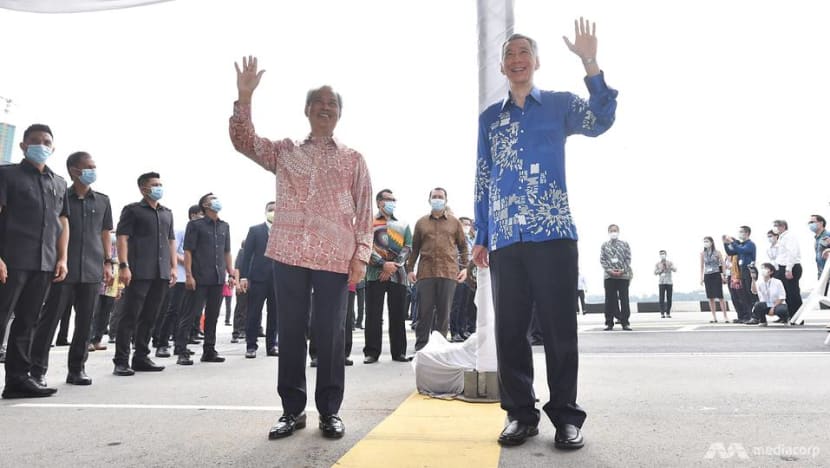
Earlier this month, Hasni said he would soon table a special plan to the federal government for the prompt reopening of the Malaysia-Singapore border at the Causeway and Second Link.
Hasni added that opening the border was necessary as it was unviable for Johor to continue with the current situation, with many of its individuals’ livelihoods and businesses impacted.
A recent spike in COVID-19 cases in Malaysia has prompted observers to speculate whether this could impact discussions between both countries to ease restrictions and open up their borders.
However, most of the cases have been concentrated in the Borneo state of Sabah, and in the peninsula, areas in Kedah as well as Selangor have been placed under the conditional movement control order (CMCO) to curb the spread of the virus.
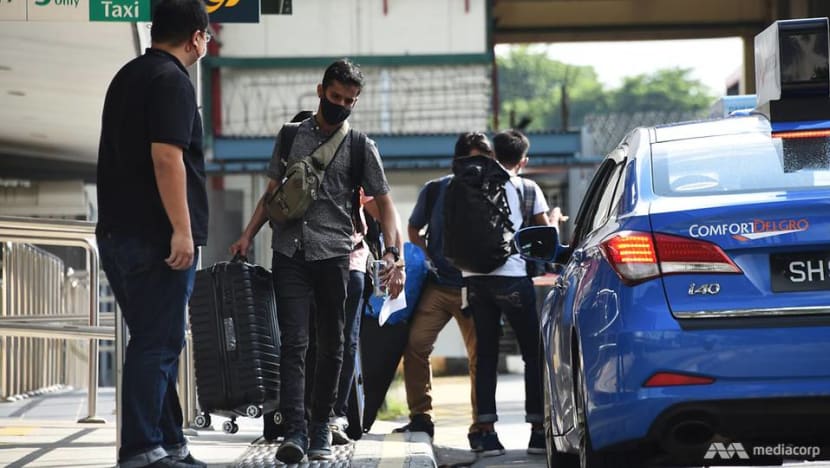
In response to queries from CNA, Johor’s health and environment committee chairman R Vidyanathan stated that the situation in Johor was “still under control”.
He noted that the rise in the number of cases was expected as Malaysia's health ministry has intensified “ surveillance activities” to curb the virus.
On the PCA and RGL schemes, he said that the procedures have been smooth from both sides. He noted that as of Oct 13, a total of 1,355 visitors have entered Johor land checkpoints via the RGL. The figure for PCA was 8,077.
“From that total, there was just one positive case detected, from a traveller who entered via PCA,” said Vidyanathan.
DAP state lawmaker Chen said both governments could consider gradually reducing the period for PCA from 90 days to possibly a month, subsequently lowering it to a week before finally allowing daily commuting.
“I do hope the Causeway will be open as soon as possible so everything will go back to normal. However, this depends on the pandemic situation on both sides. This is important also because we don’t want the COVID-19 situation to worsen,” said Chen.
Meanwhile, Singh said that the Singapore Government understood the desires of many Malaysians and Singaporeans for frequent commuting across the land checkpoints between Singapore and Johor, even with the PCA in place.
He added that discussions on the gradual restoration of cross-border travel through additional schemes are ongoing but maintained that protecting the health of the people remains the "top priority".
"Realistically, things will not go back to the way they were before the pandemic in the near future. Neither Singapore nor Malaysia would be able to safely facilitate a large inflow and outflow of daily commuters at the land borders at this stage," said Singh.
"We need to proceed with the restoration of cross-border travel in a careful, gradual, phased manner. Any further schemes would need to include mutually agreed health protocols, with manageable numbers, so as not to compromise the sacrifices Singaporeans and Malaysians have made so far in fighting the pandemic," he added.
Until daily commuting is allowed to resume, Lee, the student, must adapt to living apart from his family.
"I keep reading the news every day online, hoping for anything on when the Causeway will be reopened fully again," he said.
"Previously, I would curse (the fact that) I have to travel so far every day to school. But now after not seeing my mother for so long, I miss being able to commute."
BOOKMARK THIS: Our comprehensive coverage of the coronavirus outbreak and its developments
Download our app or subscribe to our Telegram channel for the latest updates on the coronavirus outbreak: https://cna.asia/telegram














